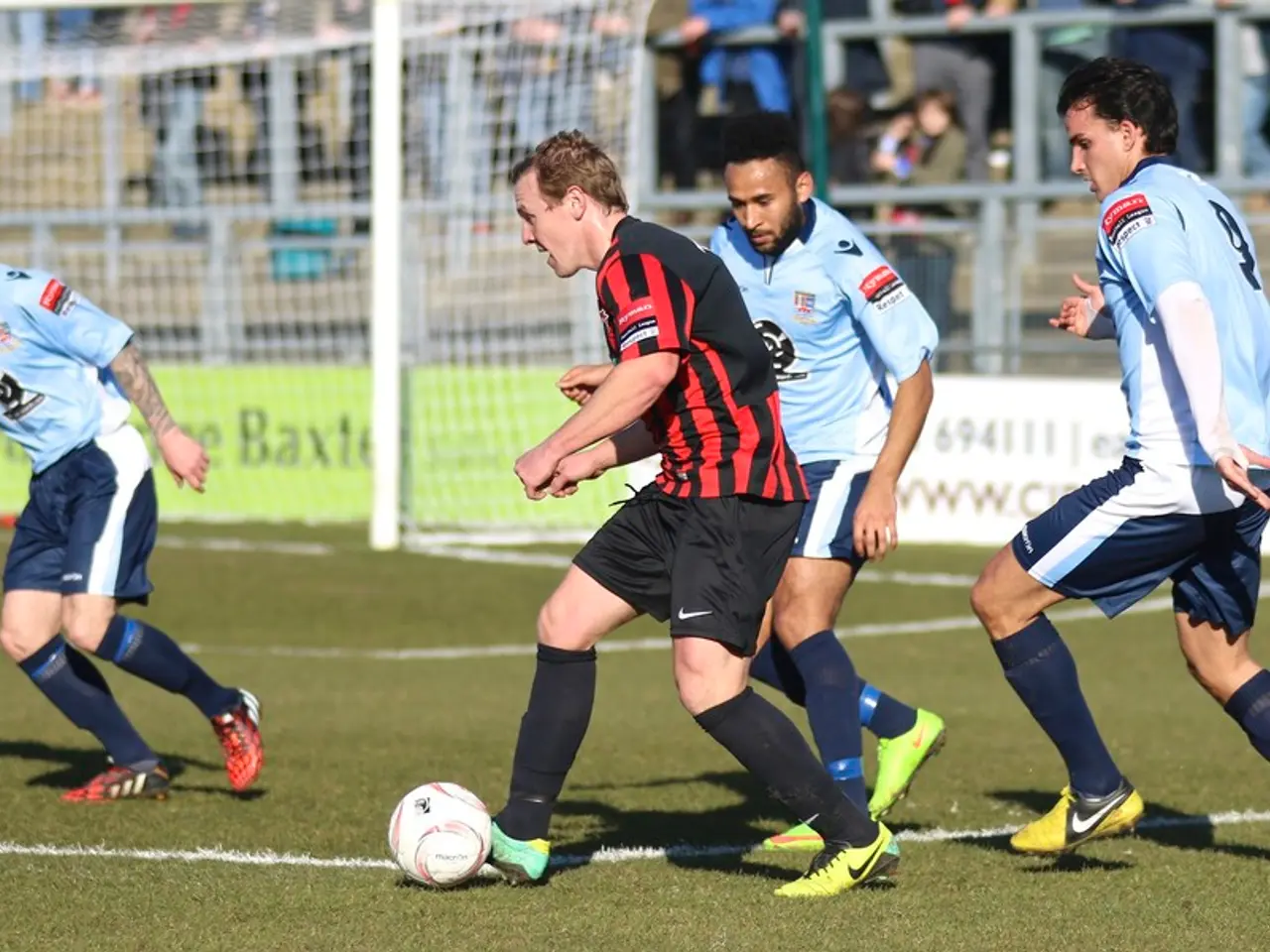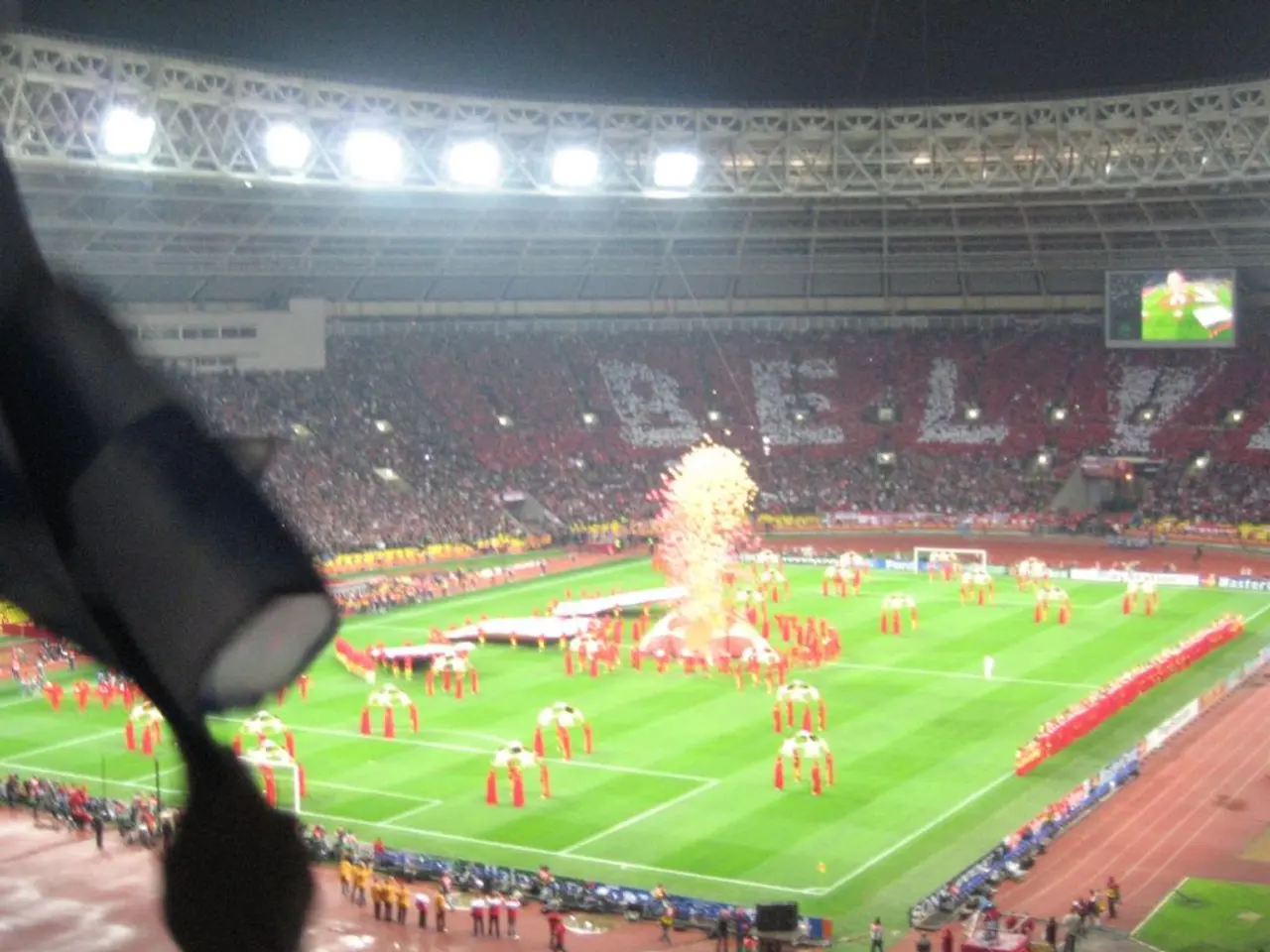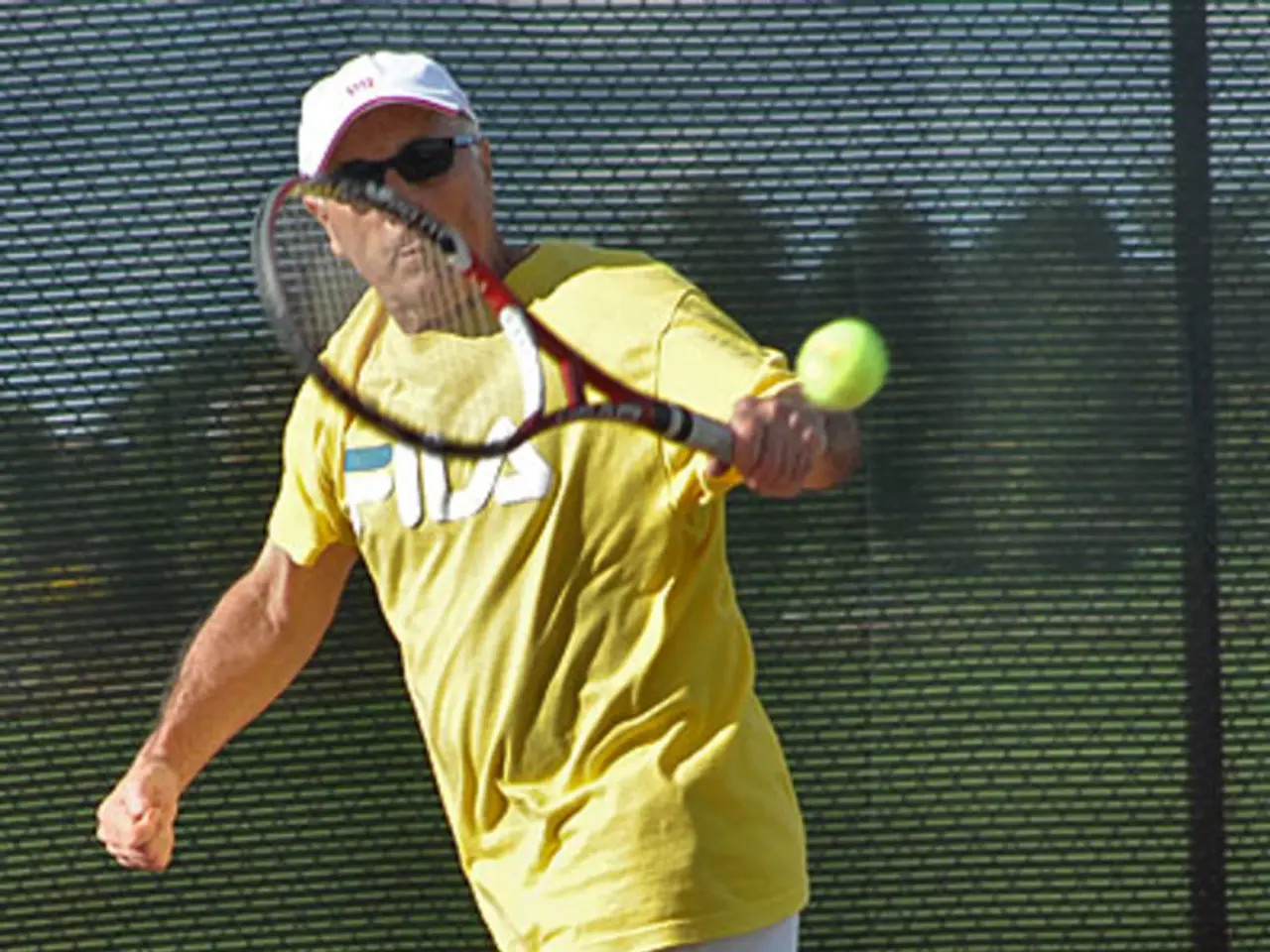Football figurehead Matthias Sammer fiercely criticizes German football administration
Matthias Sammer, a renowned advisor to Borussia Dortmund, has delivered a scathing critique of the current state of German football. In a series of pointed comments, Sammer lamented the loss of identity and strength that he believes German football has suffered in its pursuit of modernization.
Sammer argues that the traditional strengths of German football, often labelled as "rugged," "old-school," or "football of yesterday," have been discarded in favour of conforming to modern football trends. This, he contends, has resulted in a failed balance between innovation and tradition, leading to an identity crisis for German football.
"Today's German football team is at best a 'little machine,' lacking the cohesion and strength of the past," Sammer said, reminiscing about a time when the national team was known as a united, robust, and compact machine. He provocatively questioned what German football currently stands for, admitting he cannot see a clear identity in it today.
Sammer's criticism extends to recent performances, such as Germany's 1-2 extra-time quarter-final loss to Spain at the Euros on home soil. He expressed concern about a reluctance to engage in critical self-assessment and stressed the need for courage and honesty in analysing such results, rather than sugarcoating them.
To address these issues, Sammer calls for a recalibration of German football, with clearly defined priorities. He insists that leadership in clubs and associations must step up to set a clear direction, moving away from flat hierarchies to restore strength and identity to German football.
Sammer's critiques focus on the loss of traditional German football strengths and identity, the failed attempt to adapt too drastically to modern football, the lack of critical analysis of recent failures, the need for strong leadership and clear priorities to restore German football’s core values, and the lack of ambition in German football.
In a bold move, Sammer also criticized the overly positive analysis after the home European Championship, expressing a lack of courage to criticize the quarter-final exit against Spain. He stated that German football is still stronger in flattery than in critical analysis.
Sammer believes that German football needs to learn not to sell average as world-class and emphasized the need for self-confidence and routines among players. He does not believe that German football has artificial intelligence on the pitch but rather relies on thinking and feeling humans.
In conclusion, Sammer's call to action for German football is a plea for differentiation and critical-constructive discussion in assessing the sport. He does not believe in a wrong development but emphasizes the need to adjust German football to restore its traditional strengths and identity.
In line with his critique, Matthias Sammer suggests the implementation of community aid and vocational training programs to foster a stronger connection within German football, instilling a sense of unity and providing players with alternative skills beyond the sport.
Moreover, Sammer proposes incorporating sports like football into these initiatives, offering vocational training programs focused on football coaching and management, further bolstering the industry within the community.






